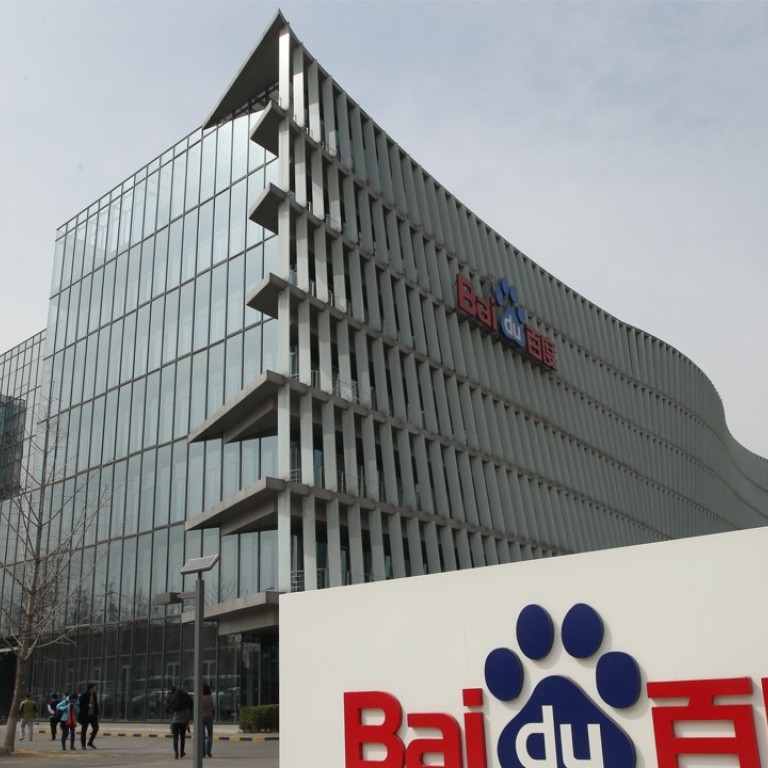
Baidu CEO pledges to keep offering advertising-free search engine app
Baidu has scaled back on medical ads after a university student sought out a controversial cancer treatment advertised among search results and died. A subsequent government probe in 2016 found that paid search results on Baidu’s search engine had misled consumers.
Baidu, which has restricted paid advertising after an outcry over medical ads, has pledged to keep offering a mobile search app that is free of sponsored results, according to founder and chief executive Robin Li Yanhong.
The Beijing-based company, which operates the leading search engine in China, will keep its Simple Search mobile app free of advertising, Li said on Saturday at the Big Data Expo held in Guiyang, capital of southwestern Guizhou province.
First launched in July last year, Simple Search supports image-scanning and voice-activated search. It can also tailor search to “children’s mode” based on voice characters.
Baidu has scaled back on medical ads after a university student sought out a controversial cancer treatment advertised among search results and died. A subsequent government inquiry in 2016 found that paid search results on Baidu’s search engine had misled consumers.
Li made the comments at his first public appearance since the surprise stepping down of chief operating officer Lu Qi, who was hired to lead the company’s push into artificial intelligence (AI) businesses. The announcement caused Baidu’s shares to plunge amid uncertainties about the company’s AI strategy.
“The vision for AI is to ensure people have more equal access to technologies and its capabilities,” said Li, who turns 50 in November. Both Baidu and society should rethink values about AI, he said.
On autonomous driving, safety should be the “first law”, he said. About half of the coding for the company’s co-developed self-driving bus with King Long United Automotive Industry are related to safety, he said. The bus is nearing mass production, he said.
Baidu is also working with the government to improve smart infrastructure, building sensors into more roads with the goal of bringing down the cost of autonomous cars and improve the accuracy in identifying objects, according to Li.
“China has the highest hopes in this, as we have a strong government and our infrastructure construction is leading the world,” he said.
Baidu, identified last November by the Ministry of Science and Technology as a national champion for spearheading the development of self-driving cars, is working on Level 4 capability, which means vehicles can pilot themselves in most conditions without human intervention.
Still, data from California’s transport authorities show Baidu is behind US autonomous leader Waymo. Baidu’s cars had “disengaged” from autonomous control every 41 miles (65.9 kilometres) between October 2016 and November 2017, compared with every 5,596 miles for the self-driving unit of Google parent Alphabet.

